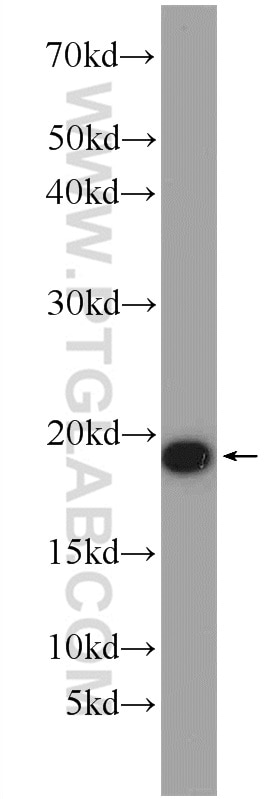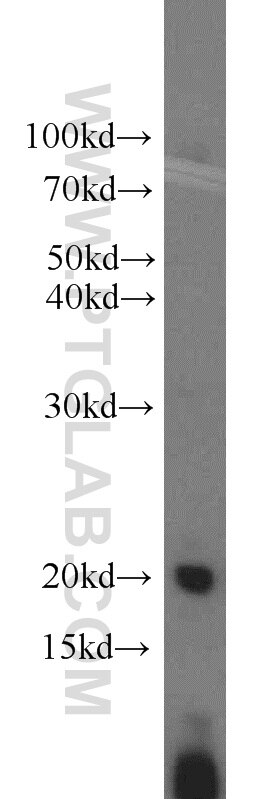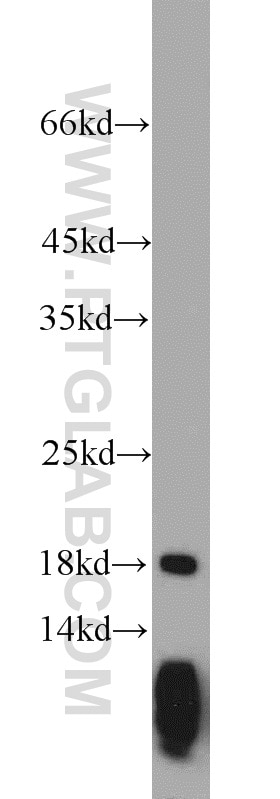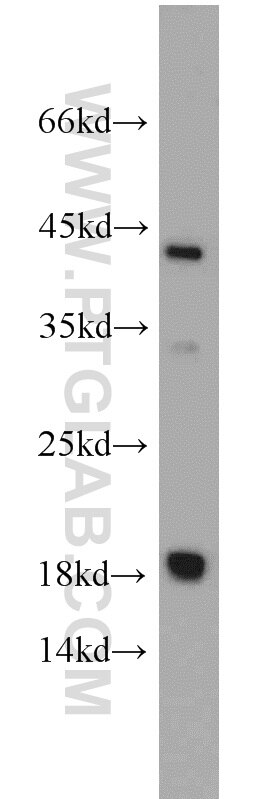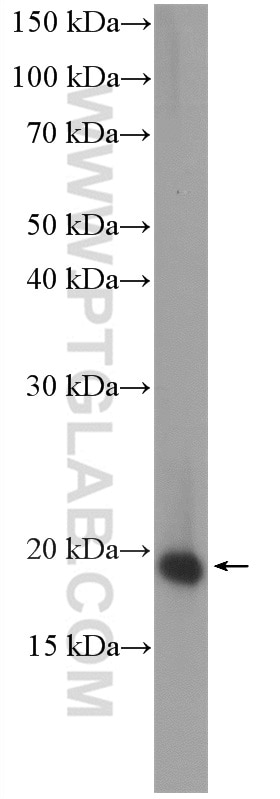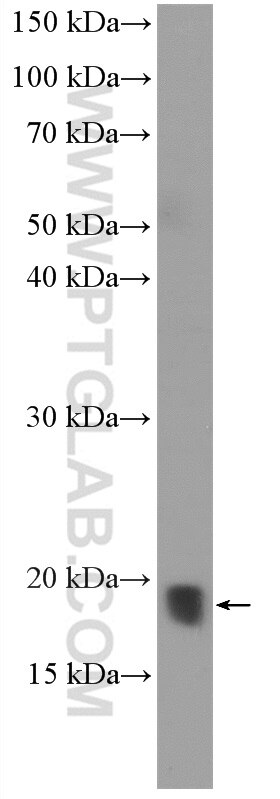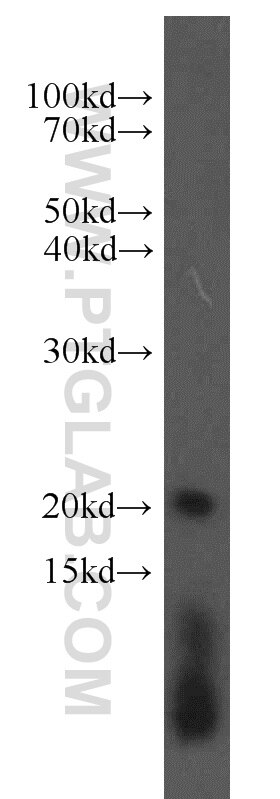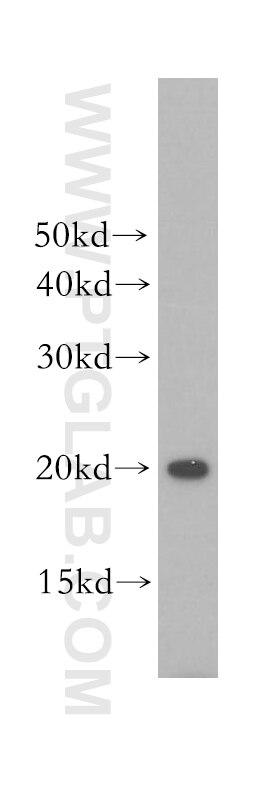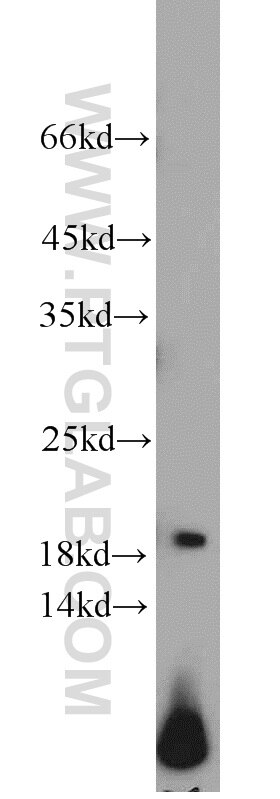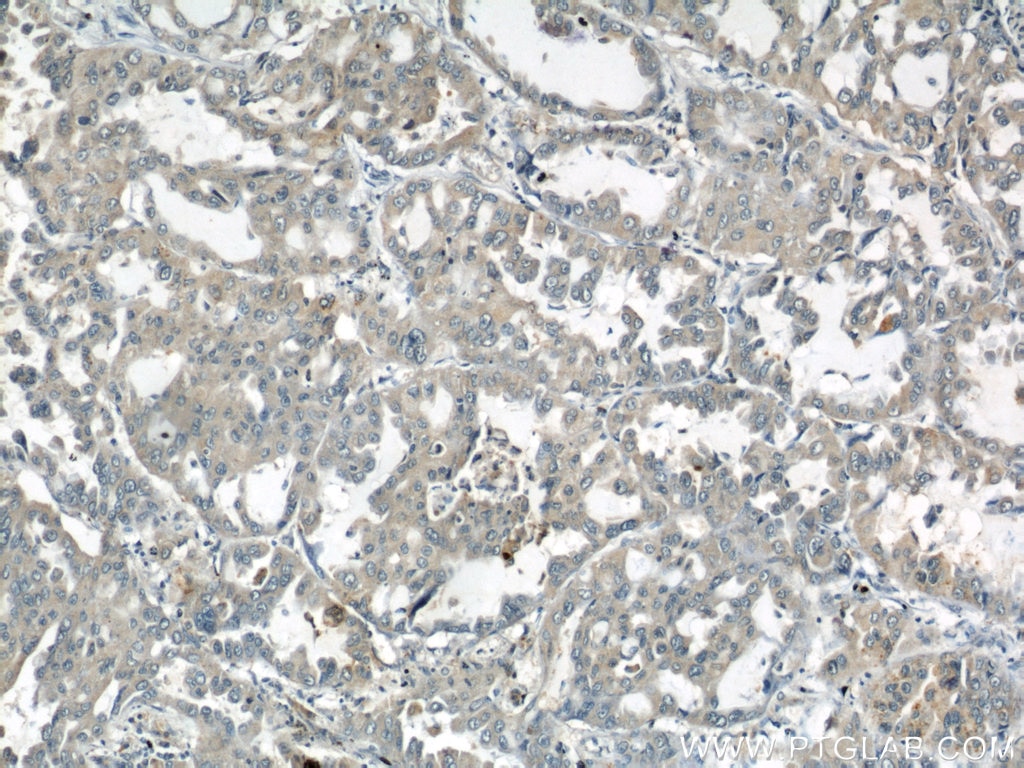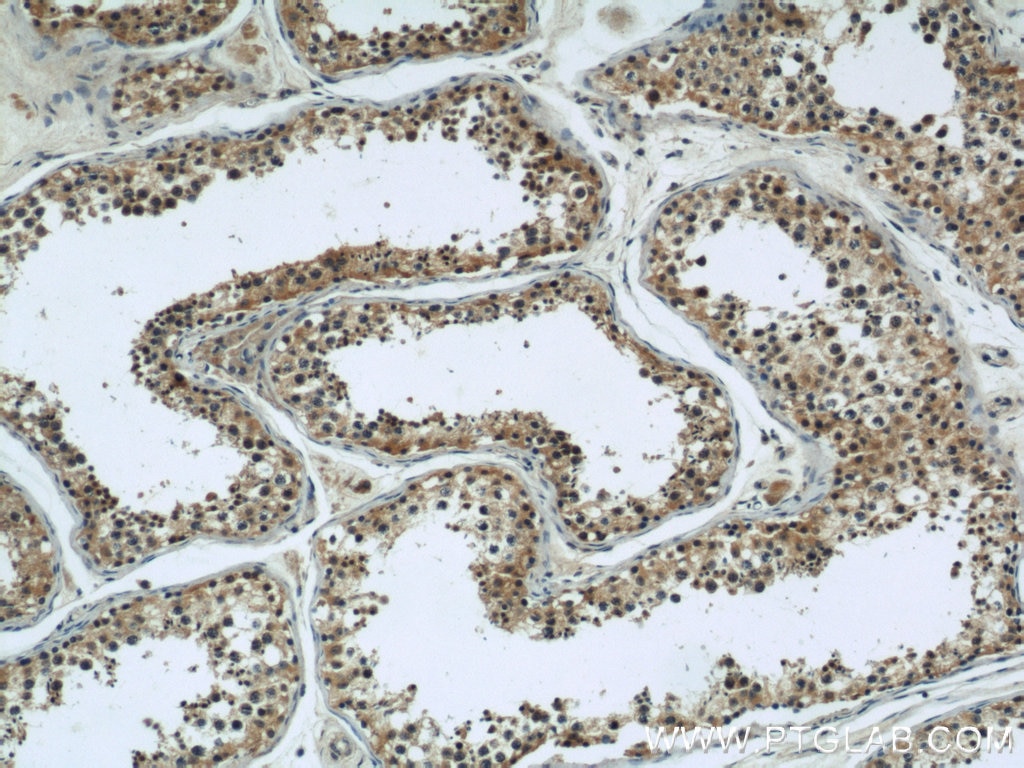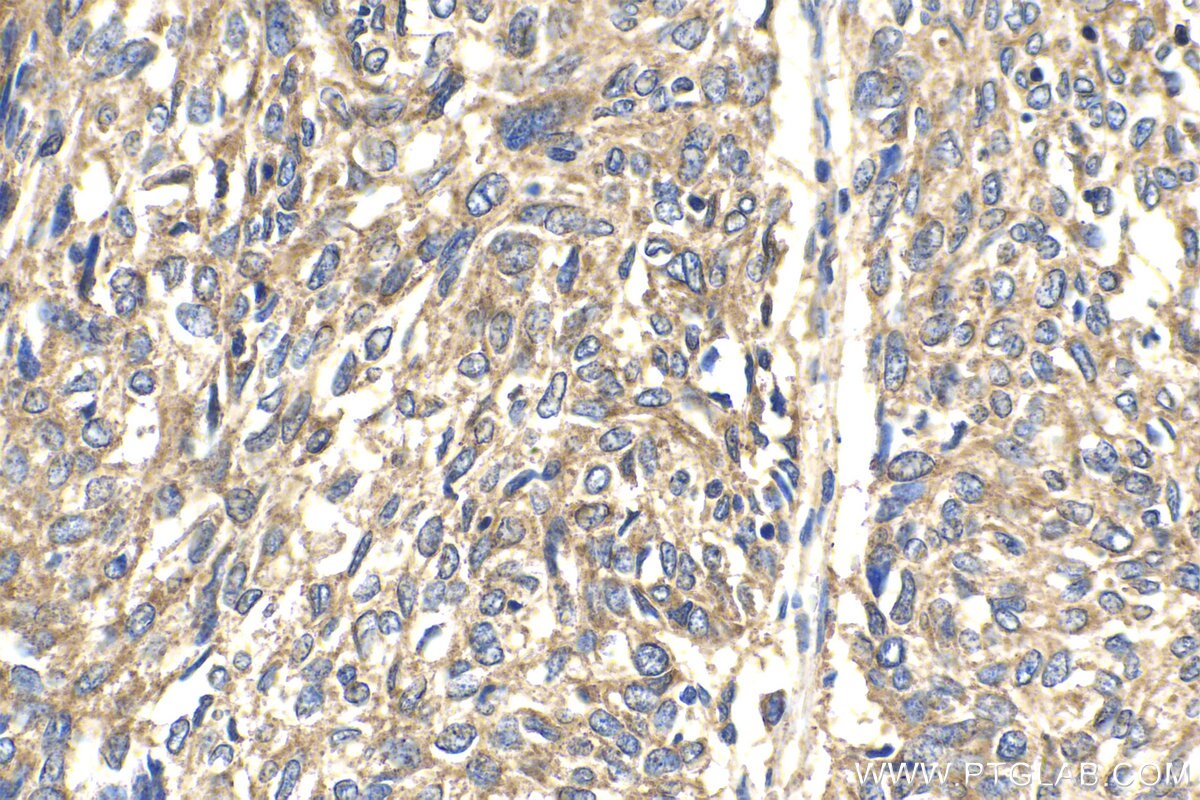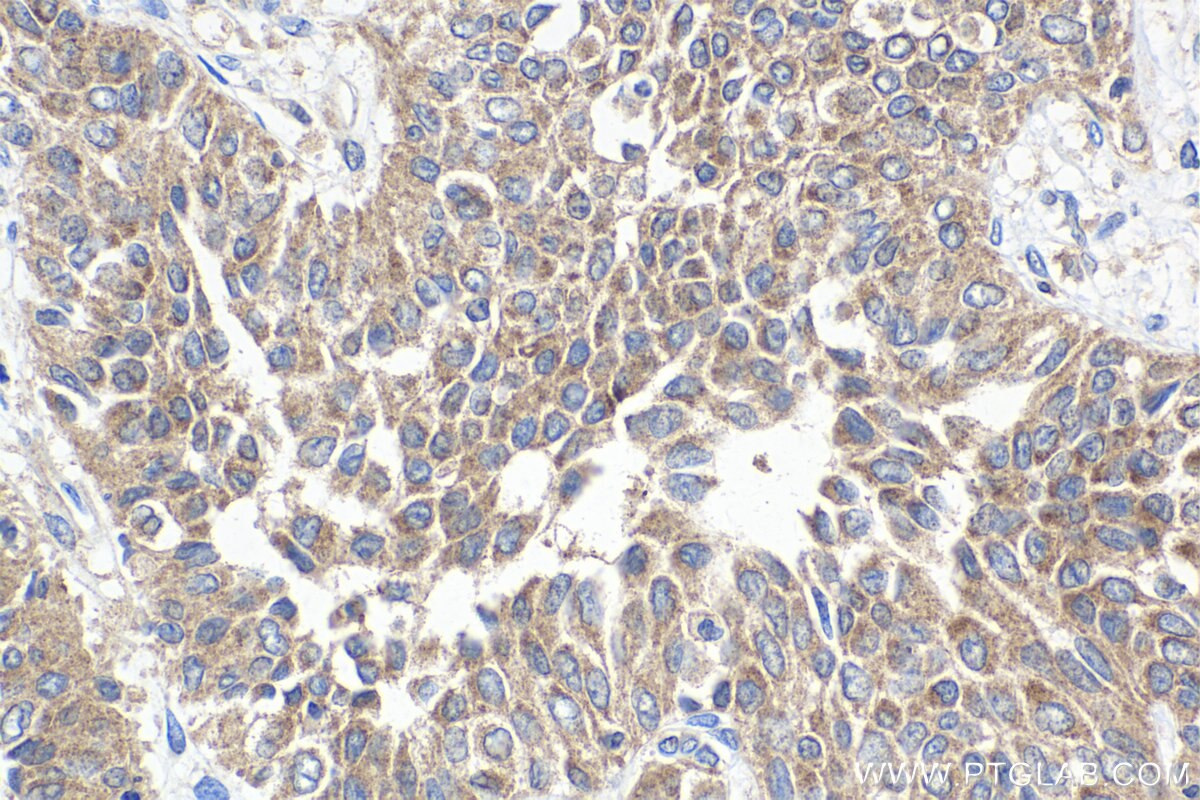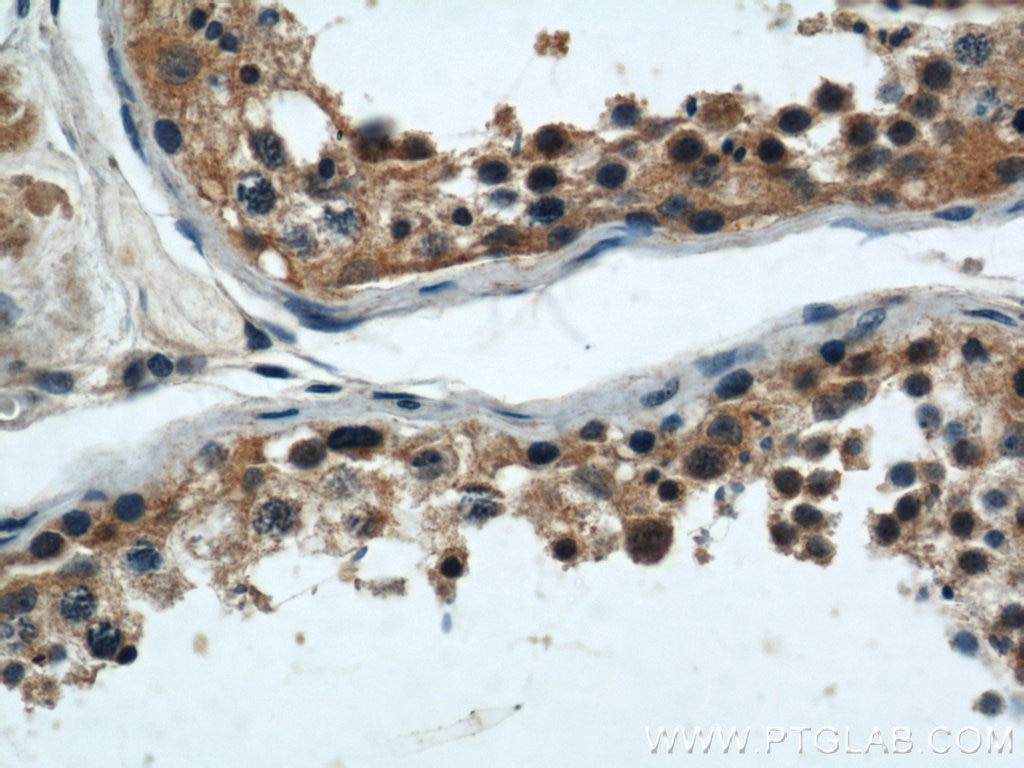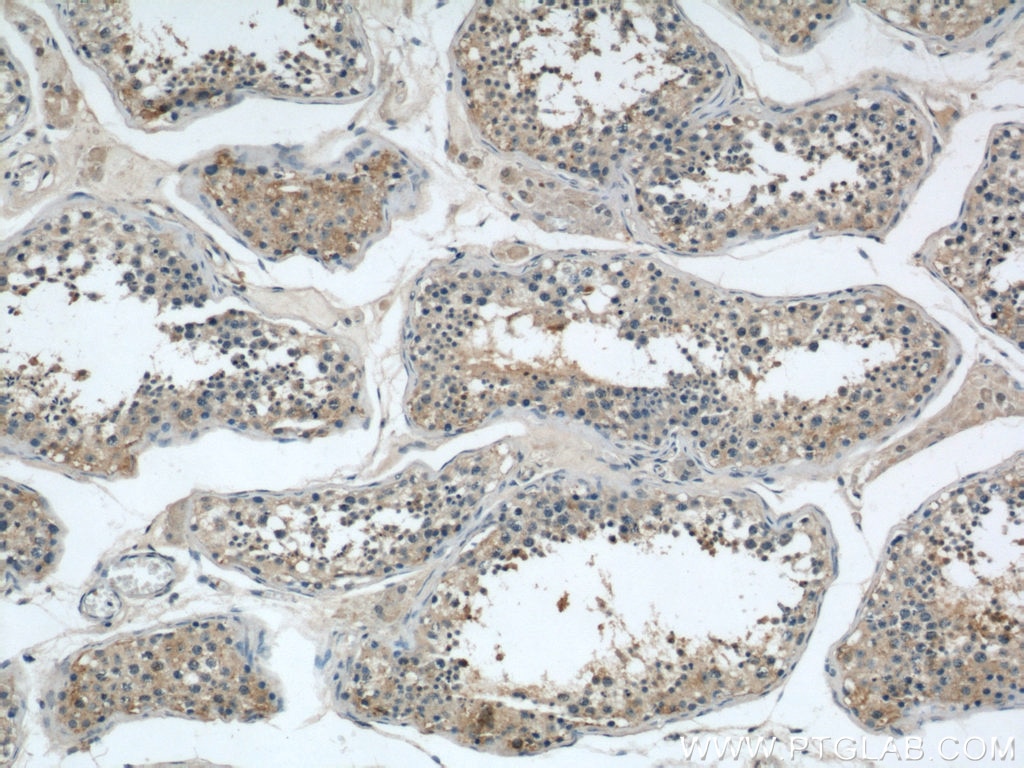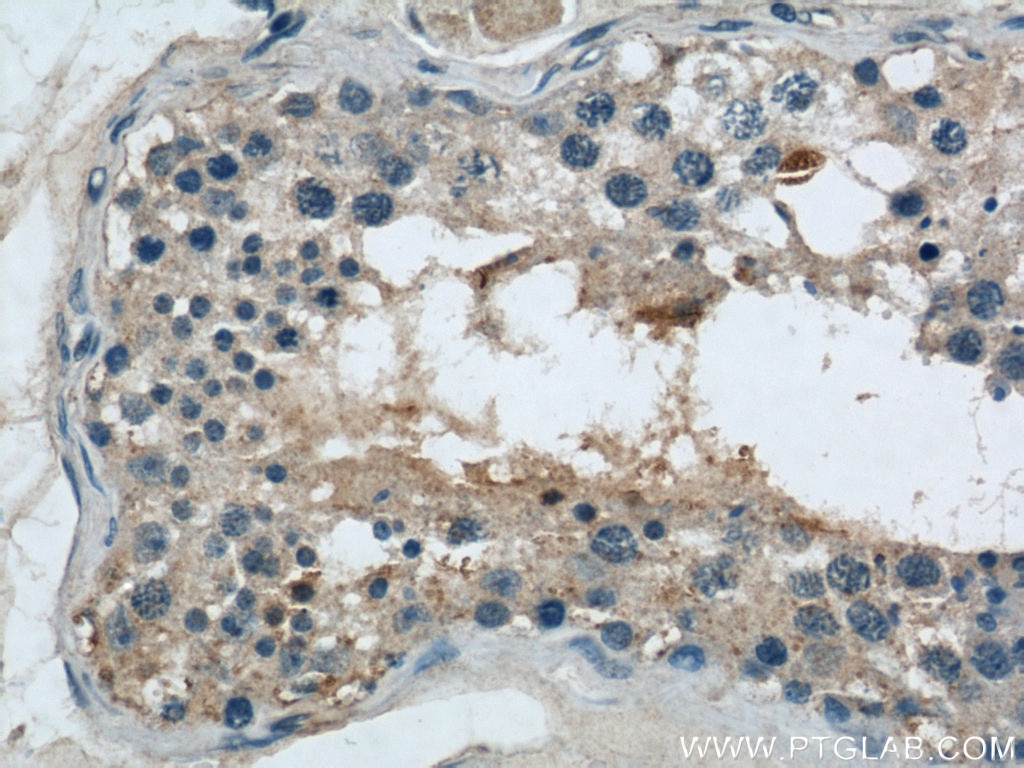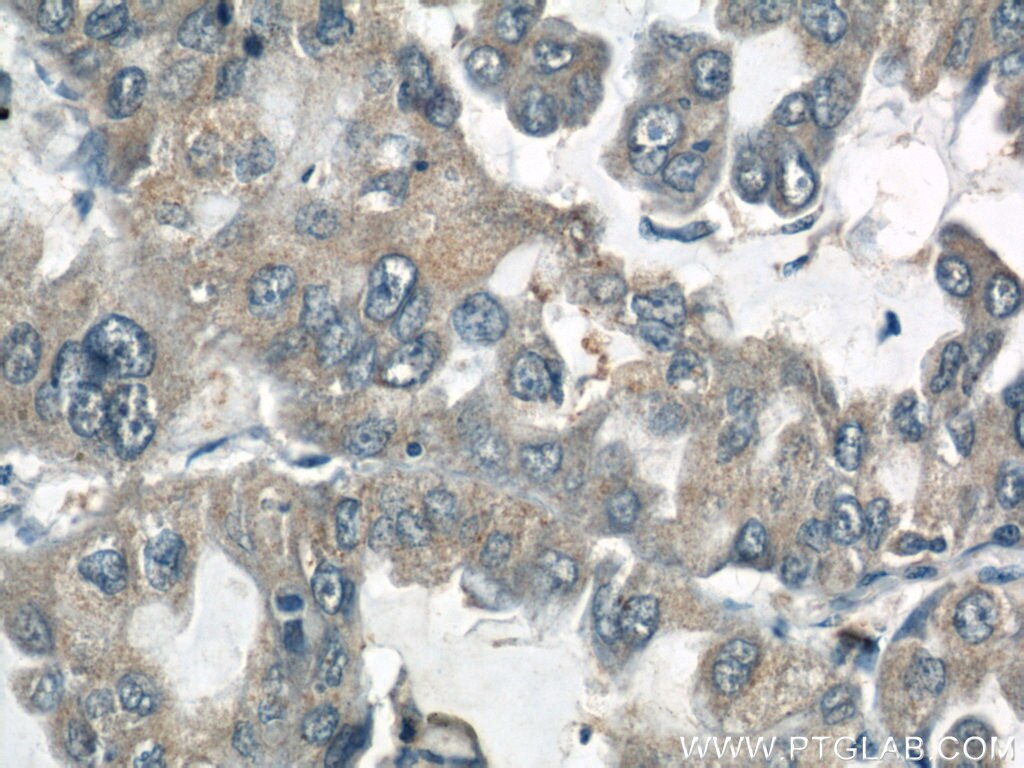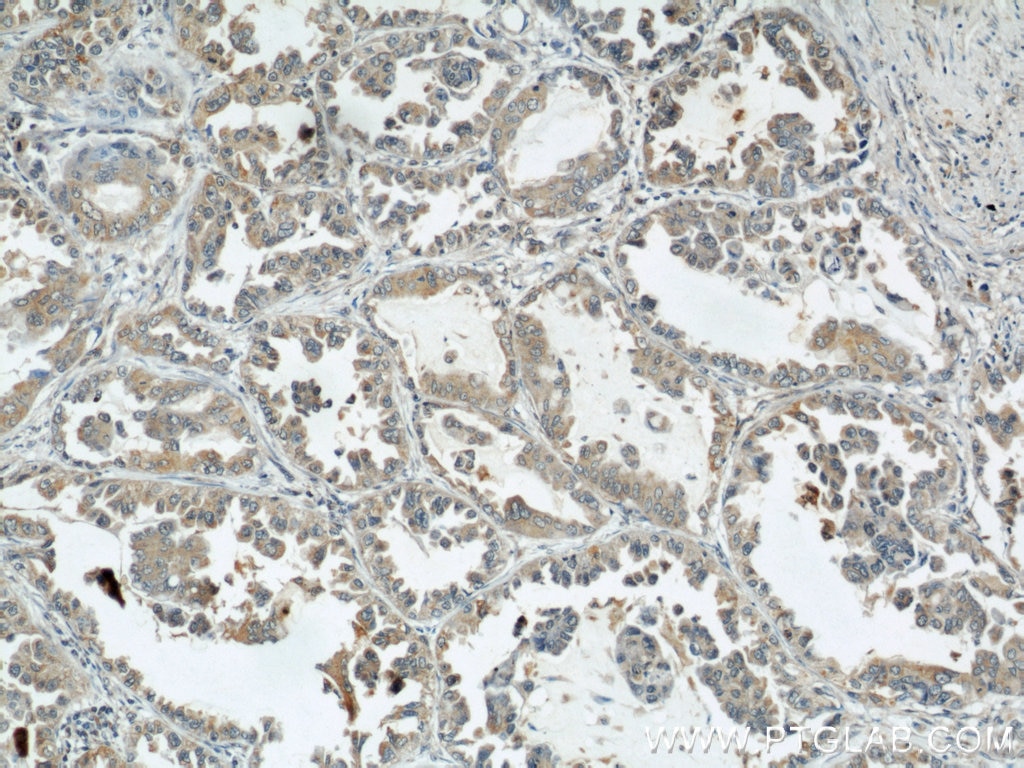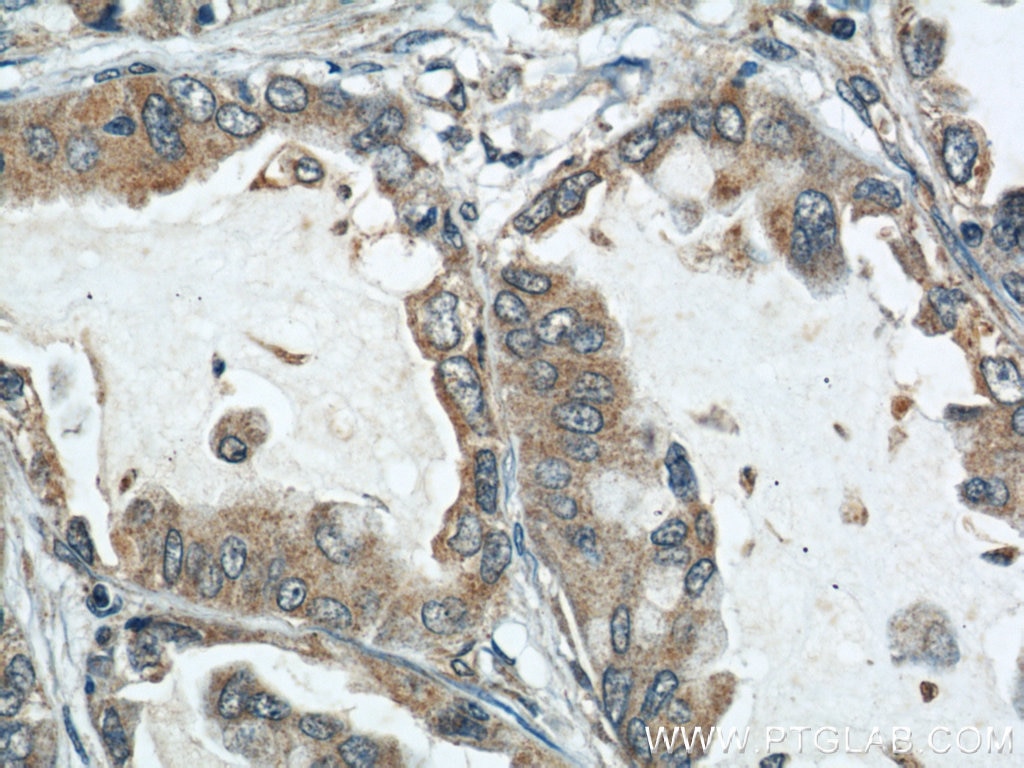ARPC4 Polyklonaler Antikörper
ARPC4 Polyklonal Antikörper für WB, IHC, ELISA
Wirt / Isotyp
Kaninchen / IgG
Getestete Reaktivität
human, Maus, Ratte und mehr (1)
Anwendung
WB, IHC, IF, ELISA
Konjugation
Unkonjugiert
Kat-Nr. : 10930-1-AP
Synonyme
Geprüfte Anwendungen
| Erfolgreiche Detektion in WB | Maushirngewebe, 4T1-Zellen, humanes Hirngewebe, humanes Plazenta-Gewebe, MCF-7-Zellen, Maus-Cerebellum-Gewebe, Maus-Dünndarmgewebe, Rattenlymphgewebe |
| Erfolgreiche Detektion in IHC | humanes Zervixkarzinomgewebe, humanes Lungenkarzinomgewebe, humanes Hodengewebe, humanes Urothelkarzinomgewebe Hinweis: Antigendemaskierung mit TE-Puffer pH 9,0 empfohlen. (*) Wahlweise kann die Antigendemaskierung auch mit Citratpuffer pH 6,0 erfolgen. |
Empfohlene Verdünnung
| Anwendung | Verdünnung |
|---|---|
| Western Blot (WB) | WB : 1:500-1:2000 |
| Immunhistochemie (IHC) | IHC : 1:50-1:500 |
| It is recommended that this reagent should be titrated in each testing system to obtain optimal results. | |
| Sample-dependent, check data in validation data gallery | |
Veröffentlichte Anwendungen
| WB | See 5 publications below |
| IF | See 2 publications below |
Produktinformation
10930-1-AP bindet in WB, IHC, IF, ELISA ARPC4 und zeigt Reaktivität mit human, Maus, Ratten
| Getestete Reaktivität | human, Maus, Ratte |
| In Publikationen genannte Reaktivität | human, Maus, Rind |
| Wirt / Isotyp | Kaninchen / IgG |
| Klonalität | Polyklonal |
| Typ | Antikörper |
| Immunogen | ARPC4 fusion protein Ag1366 |
| Vollständiger Name | actin related protein 2/3 complex, subunit 4, 20kDa |
| Berechnetes Molekulargewicht | 20 kDa |
| Beobachtetes Molekulargewicht | 19-25 kDa |
| GenBank-Zugangsnummer | BC012596 |
| Gene symbol | ARPC4 |
| Gene ID (NCBI) | 10093 |
| Konjugation | Unkonjugiert |
| Form | Liquid |
| Reinigungsmethode | Antigen-Affinitätsreinigung |
| Lagerungspuffer | PBS with 0.02% sodium azide and 50% glycerol |
| Lagerungsbedingungen | Bei -20°C lagern. Nach dem Versand ein Jahr lang stabil Aliquotieren ist bei -20oC Lagerung nicht notwendig. 20ul Größen enthalten 0,1% BSA. |
Hintergrundinformationen
The ARP2/3 complex consists of seven subunits: two actin-related proteins (ARP2 and ARP3) and five ARP2/3 complex polypeptides (ARPC1B and ARPC2-5). ARPC4 is a core subunit of the actin-related protein (ARP2/3) complex, which catalyzes the formation of F-actin networks. ARPC4 is essential for the structural integrity of the ARP2/3 complex function. Mutations in ARPC4 cause Developmental delay, language impairment, and ocular abnormalities (DEVLO)(PMID: 35047857).
Protokolle
| PRODUKTSPEZIFISCHE PROTOKOLLE | |
|---|---|
| WB protocol for ARPC4 antibody 10930-1-AP | Protokoll herunterladen |
| IHC protocol for ARPC4 antibody 10930-1-AP | Protokoll herunterladenl |
| STANDARD-PROTOKOLLE | |
|---|---|
| Klicken Sie hier, um unsere Standardprotokolle anzuzeigen |
Publikationen
| Species | Application | Title |
|---|---|---|
Life Sci Alliance A high-throughput two-cell assay for interrogating inhibitory signaling pathways in T cells | ||
Biochim Biophys Acta Proteins Proteom Deciphering the protein-protein interaction network regulating hepatocellular carcinoma metastasis. | ||
Drug Resist Updat Intercellular adhesion molecule-1 suppresses TMZ chemosensitivity in acquired TMZ-resistant gliomas by increasing assembly of ABCB1 on the membrane | ||
Biomolecules Activation of ARP2/3 and HSP70 Expression by Lipoteichoic Acid: Potential Bidirectional Regulation of Apoptosis in a Mastitis Inflammation Model | ||
Biomolecules Targeted Regulation of HSP70 by the ARP2/3 Complex in Mammary Epithelial Cells and Its Impact on Host Cell Apoptosis |
